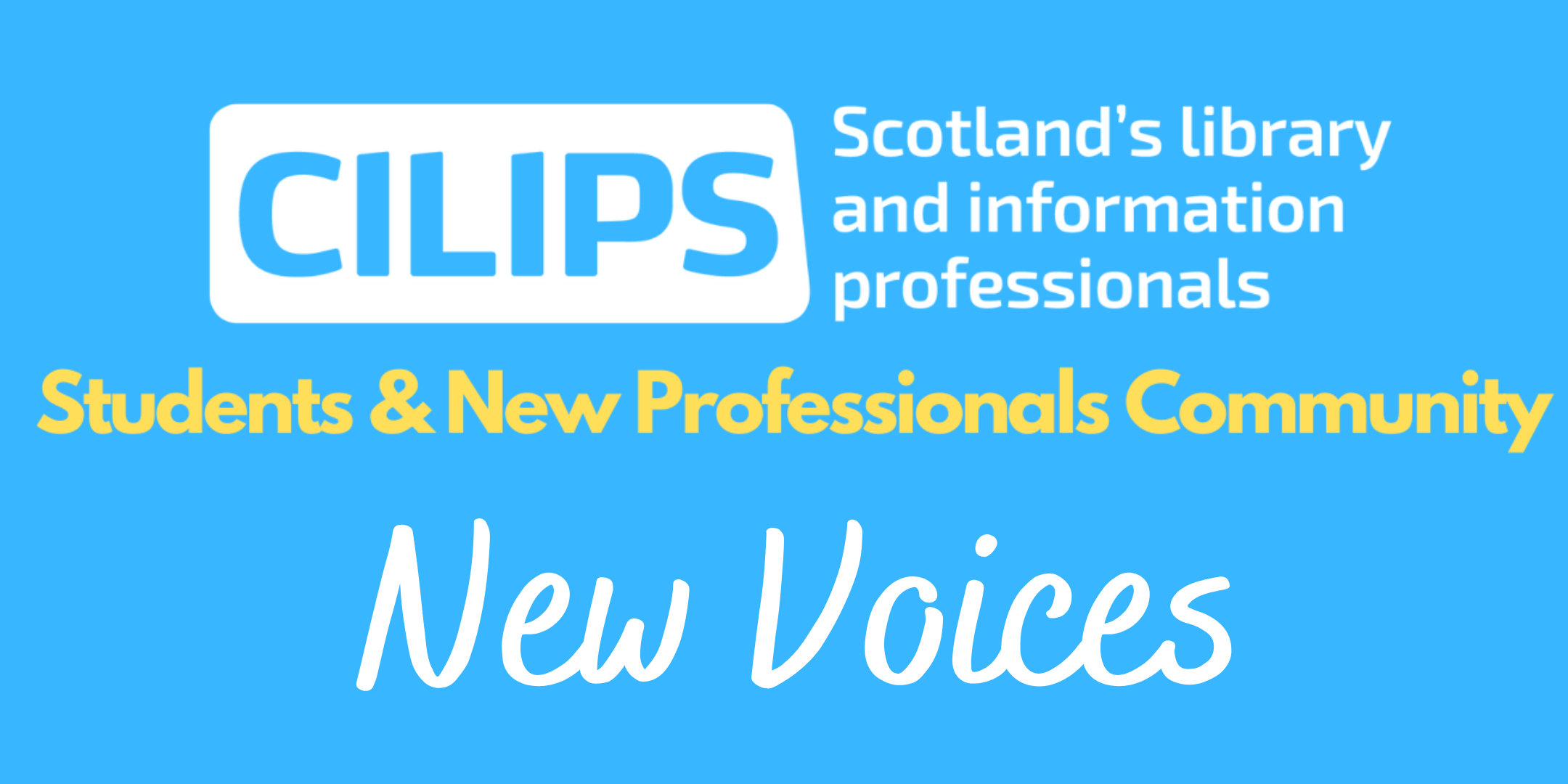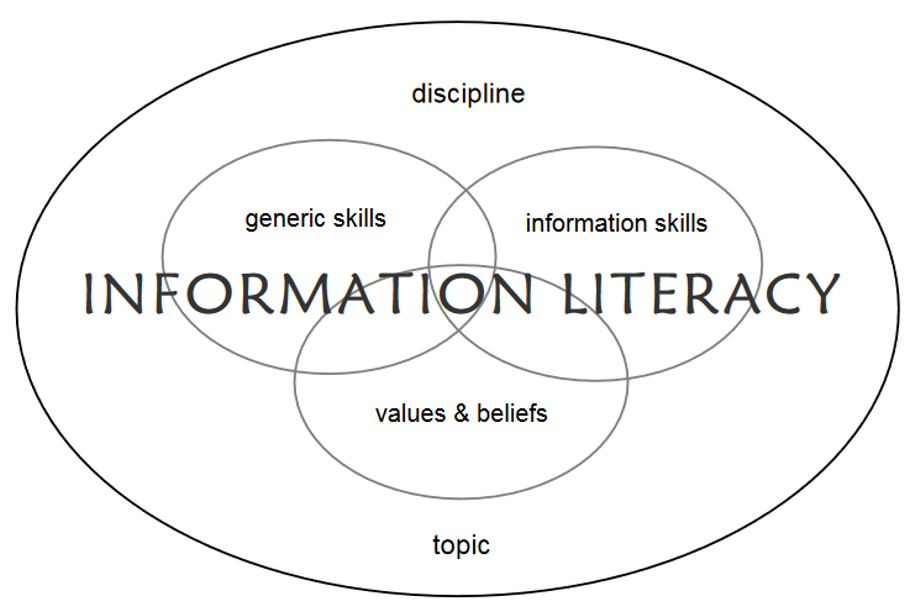New Voices RGU Student Series 2024 – Felix Aitchison
Category: Blog, New Voices, RGU Student Series 2024

In the 2024 Student Series for the New Voices blog, CILIPS Students & New Professionals Community will be sharing the views of Robert Gordon University students from the MSc in Information and Library Studies.
With special thanks to Dr Konstantina Martzoukou, Teaching Excellence Fellow and Associate Professor, for organising these thought-provoking contributions.
 Today’s blog post author is Felix Aitchison, a current student on the MSc Information and Library Studies course at RGU. Alongside study, Felix also works at a data security company and in a West End theatre.
Today’s blog post author is Felix Aitchison, a current student on the MSc Information and Library Studies course at RGU. Alongside study, Felix also works at a data security company and in a West End theatre.
How can libraries support workers and jobseekers in a working world increasingly shaped by AI?
AI is changing the world, and the workplace
We are currently witnessing a technological development of enormous magnitude with the growing power and popularity of generative artificial intelligence (AI) technology. With this significant shift taking place across society and being particularly prevalent within the workplace (Ooi et al. 2023), jobseekers are now facing unique challenges, along with potential benefits, when it comes to using generative AI tools in such environments (Long and Magerko 2020).
AI in the Workplace
The development of information literacy skills is key to enabling workers to harness generative AI tools, though outside of educational institutions where such training is now increasingly incorporated into the curriculum (Akakpo 2023), there are very few resources available, especially to older adults, which support the growth of these skills (Barrie et al. 2021). Given the prominent challenges and potential benefits associated with using AI tools, information professionals have an increased responsibility to equip workers with the literacy skills required to use generative AI tools sensibly.
What are information literacy skills?
When considering the concept of information literacy, it is vital to understand that knowledge of information technology systems is only a single component of literacy as a whole, with other important aspects being generic skills such as critical thinking, social responsibility, and logical reasoning (Farrelly and Baker 2023). ANZIIL highlights these skills, among others, in their 2004 information literacy framework. Additionally, it is important to note that many of the aforementioned skills overlap with those considered ’employability skills’ (Crawford and Irving 2012: Sobota 2023), and CILIP (2018 p.5) even recognises information literacy in the workplace context as ‘knowing when and how to use information in order to help achieve organisational aims, and to add value to organisational activities’.

Australian and New Zealand Institute for Information Literacy (ANZIIL)
Information Literacy Framework (ANZIIL 2004, p.7).
How can libraries promote the information literacy skills required to harness AI technology for use in the workplace?
There are several key facets of information literacy which hold specific relevance to AI, and with which libraries can assist in developing, namely the following:
- The ability to find information – this involves finding information both while using AI, and using outside sources to verify AI output when necessary (Ng et al. 2021).
- Critical thinking – the ability to question given information and analyse AI output for reliability and accuracy is vital to combatting misinformation.
- The ability to recognise and challenge bias – recent studies have brought to light the prevalence of bias and reinforced inequities created through algorithmic AI (Makhortykh et al. 2021). Those working with AI should know how to identify these biases in practice.
- Ethical values – the understanding of the ethics involved in information management and policies such as copyright and data protection is of relevance to AI, given the public concerns raised surrounding art theft (Gurung 2023).
How will the use of generative AI change library practices?
Libraries have long played a key role in supporting jobseekers and promoting employability skills, however, additional resources developed with AI-specific considerations will be necessary in order to provide jobseekers with the ability to use these tools confidently. Changes will be necessary specifically to libraries’ resources and training offerings.
Resources:
- Materials should be kept up to date regarding developments in AI technology, the applications of AI, and best practices regarding the appropriate uses of AI.
- Specific grant opportunities will likely become more relevant to the development of more in depth AI programmes.
Training offerings:
- Adult learning and skills courses should be updated and expanded to reflect current AI technologies, both in terms of relevant IT and critical analysis skills.
- The skills areas mentioned above, namely critical thinking, should be of particular focus in these trainings in order to address key concerns surrounding the prominence of misinformation and biased information generated by AI tools.
- Outreach to disadvantaged or rural communities, small businesses, and older adults will be necessary to equalise the playing field for jobseekers within society, as these groups often experience the digital divide.
Bibliography
AKAKPO, M.G., 2023. Skilled for the Future: Information Literacy for AI Use by University Students in Africa and the Role of Librarians. Internet Reference Services Quarterly, 27(4), pp. 1-8.
ANZIIL, 2004. Australian and New Zealand Information Literacy Framework: principles, standards and practice. [online]. South Australia: ANZIIL. Available from: www.library.qut.edu.au/about/policies/information-literacy-framework/documents/anz-info-lit-policy.pdf [Accessed 30 October 2023].
BARRIE, H. et al., 2021. “Because I’m old”: The role of ageism in older adults’ experiences of digital literacy training in public libraries. Journal of Technology in Human Services, 39(4), pp. 379-404.
CILIP, 2018. CILIP Definition of Information Literacy 2018. [online]. Available from: https://infolit.org.uk/ILdefinitionCILIP2018.pdf [Accessed 28 October 2023].
CRAWFORD, J. and IRVING, C., 2012. Information literacy in employability training: The experience of Inverclyde Libraries. Journal of Librarian and Information Science, 44(2), pp. 79-89.
FARRELLY, T. and BAKER, N., 2023. Generative Artificial Intelligence: Implications and Considerations for Higher Education Practice. The Role of Technology in Education: Progress, Problems, and Possibilities, 13(11), pp. 1-14.
GURUNG, R., 2023. Visual Art in the Age of AI. [online]. Undergraduate Research Showcase, Old Dominion University. Available from: https://digitalcommons.odu.edu/cgi/viewcontent.cgi?article=1073&context=covacci-undergraduateresearch [Accessed 04 November 2023].
LONG, D. and MAGERKO, B., 2020. What is AI Literacy? Competencies and design considerations. Proceedings of the CHI Conference on Human Factors in Computing Systems. 3-5 April 2020. Honolulu: ACM. pp. 1-16.
MAKHORTYKH, M. et al., 2021. Detecting Race and Gender Bias in Visual Representation of AI on Web Search Engines. In: BORATTO, L. et al., eds. Advances in Bias and Fairness in Information Retrieval. Proceedings of the Second International Workshop on Algorithmic Bias in Search and Recommendation. 1-5 April 2021. Italy: Springer. pp. 36-50.
NG, D.T. et al., 2021. Conceptualizing AI literacy: An exploratory review. Computers and Education: Artificial Intelligence, 2(1), pp. 1-11.
OOI, K.B. et al., 2023. The Potential of Generative Artificial Intelligence Across Disciplines: Perspectives and Future Directions. Journal of Computer Information Sciences, 63(6), pp. 1-32.
SOBOTA, D., 2023. “Critical workplace information literacy: Laying the groundwork for a new construct.” Journal of Information Literacy, 17(1), pp. 138-161.


